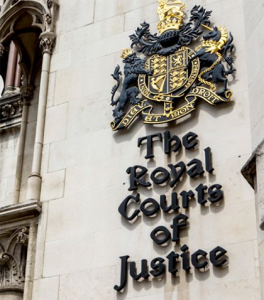UK’s seizure of asylum seeker phones illegal – court ruling
Britain’s High Court has ruled that the UK Home Office’s practice of confiscating the phones of asylum seekers is unlawful.
Reports from the UK say the Home Office has implemented a secret policy of seizing phones belonging to asylum seekers who arrive in the UK in small boats, with the phones’ data subsequently being extracted.
 Three asylum seekers, with the support of refugee advocacy groups, sought a judicial review of the practice in the High Court.
Three asylum seekers, with the support of refugee advocacy groups, sought a judicial review of the practice in the High Court.
All three asylum seekers, who are not identified, had their phones seized between April and September 2020. This rendered them unable to tell their families they had arrived in the UK or having enough time to jot down important phone numbers.
Lawyers for the three told the court officials threatened them with criminal penalties unless they provided the codes to unlock their phones.
They claimed data stored in the phones was later extracted and that thousands of others arriving in the UK via clandestine routes, such as across the Channel, have had phones confiscated and data cloned.
The three claimants’ phones were only returned months later, after legal action had started, meaning asylum seekers were unable to contact their families to say they were safe.
The court has now ruled that the policy was unlawful – and breached human rights and data protection laws.
Human Rights NGO Privacy International helped launch the case claiming that UK Home Secretary Priti Patel had denied the existence of the phone policy, but admitted confiscating them and cloning data that the Home Office still holds.
The Home Secretary had argued that immigration officials had the right, under the Immigration Act 2016, to search the arrivals by small boat, take their phones and extract their data.
But the High Court ruled the law could not be used to carry out personal searches – adding that the policy also infringes on the right to family and private life enshrined in Article 8 of the European Convention of Human Rights.
One of the lawyers representing the asylum seekers Clare Jennings told media: “Such systematic extraction of personal data from vulnerable asylum seekers, who were not suspects in any crime, was an astonishing and unparalleled assault on fundamental privacy rights”.
“The judgment provided much needed clarification as to the extent of immigration officers’ powers of search and seizure, and confirmed beyond doubt that the home secretary’s policy of seizing all mobile phones from small boat arrivals was unlawful,” she said.
Another of the lawyers Daniel Carey said: “All of this had real impacts on very vulnerable people, who lost touch with their families and couldn’t get their asylum documentation, while the phones languished on a shelf for many months, many of which now cannot be returned.
“I am pleased that today’s judgment vindicates our clients and all those affected. It is another example of how the Home Office’s hostile environment policy disregards basic human rights and dignity.”
A statement from Privacy International said: “It’s quite clear that the Home Office considered that asylum seekers arriving on UK shores did not have the same privacy rights as other people – it unashamedly granted itself unlawful powers to systematically seize and search their phones, even when they weren’t suspected of any crime.
“This is in line with this government’s (and many others’) efforts to criminalise migration and rob migrants of their basic human rights. We welcome today’s judgment and hope the claimants will obtain due redress for these unacceptable violations of their rights.”












